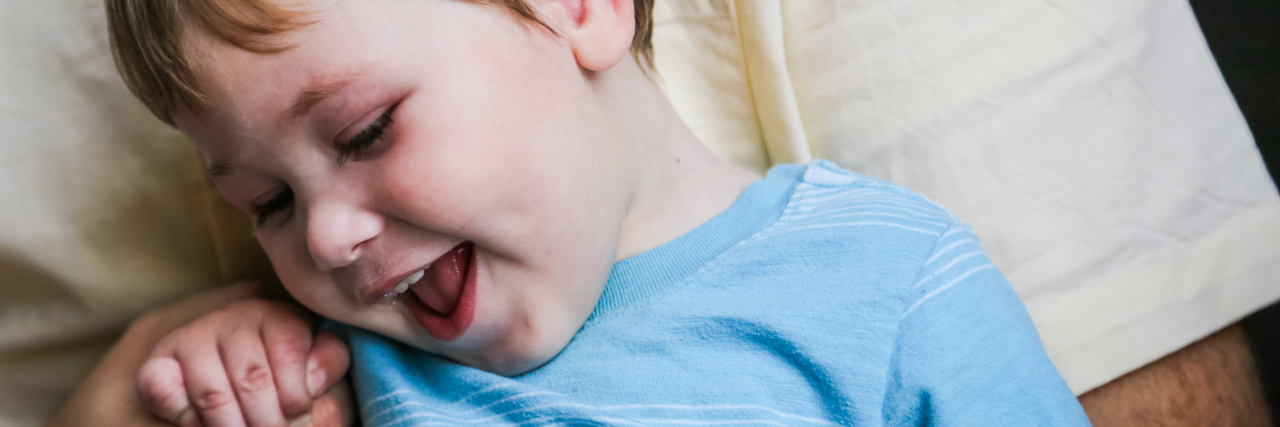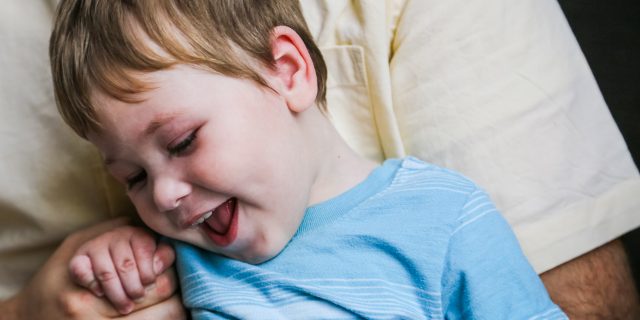Why No One Understands My Sister's Disability
My younger sister has four diagnosed disabilities, autism and #Holoprosencephaly being the primary two disabilities of her diagnosis and playing the most significant effects on her life.
Autism is a commonly known neurological #Disability that affects mainly social development and commonly physical development with gross and fine motor skills. Autism is lifelong, nonprogressive, with main struggles being communicating, forming relationships, and using language and abstract concepts (for example, sarcasm). Autism is a spectrum disorder meaning it affects each person differently with different circumstances and consequences.
Holoprosencephaly (HPE) is another neurological disorder where the brain doesn’t develop into two separate hemispheres during pregnancies. Since the brain doesn’t fully form, there are commonly facial defects in the eyes, nose, and upper lip (and can also be accompanied by other disorders like cyclopsy). Other than these facial defects, common side effects of HPE also include seizures and mental retardation. Since facial defects are a trademark of this disability, her disability is often seen right through.
Growing up, it was never easy going out in public with my sister. During the phase of my imaginary audience, it wasn’t hard to believe everyone was dealing a critical amount of attention on myself, my sister, and the rest of my family. Maybe they were, maybe they weren’t.
Firstly, she was super clumsy due to her hemiparesis diagnosis, meaning one side of her body is stronger than the other along with her generally poor motor skills from her fourth diagnosis which covers an umbrella of disabilities being Global Developmental Delay. This made her clumsy, she’d trip and fall a lot, she didn’t start walking until two and a half years of age, and she wasn’t very coordinated in general. That part was tip of the iceberg since the bigger part of her diagnosis focused on poor behavioural and social development.
It was mildly embarrassing when I felt strangers stare at us when my sister would be having a melt down. We’d get weird looks because my sister was a grown child, and bigger than her age, but causing a scene in public like a toddler. This wasn’t easy to deal with as an adult but especially since I was a preteen with my own problems as well. That was one example of when my sister was judged based on assumptions she was neurotypical, it was never easy to explain she had a disability because telling anyone that she has autism isn’t being entirely faithful since some of her HPE symptoms contradict those of autism.
Sometimes these things were as simple as getting looks fro people who didn’t understand why my family got to park in disability permit spots because everyone in our family looked normal. In reality, we were granted the parking pass because my sister was deemed a flight risk. Or in odd occurrences like when we went to the Toronto Zoo and surpassed the standard admission line because my sister got a discounted pass and didn’t understand waiting in line because she was young. We got odd looks from people because we didn’t have to follow standard admittance and got to go in easily on a busy day. It was all the judgemental glances my family got, in public I was often embarrassed. I didn’t like being centred out and in my youth, I always preferred to fade into the background especially after the negative attention we got with my sister.
She didn’t have it easy at school either. In the beginning, the school refused to give her an educational assistant (EA) until they were provided a formal diagnosis despite her obvious struggles. She wasn’t potty-trained until five and continued have accidents up until second or third grade.
With the help of a friend, she helped my mom find the proper resources to find a diagnosis for my sister after noting the early childhood similarities between my sister and her autistic daughter. She helped my mom recognize that my sister’s development wasn’t the same as a normal kid’s and opened her eyes to the possibilities.
It was during second grade my mom pulled my sister out of school for majority of the year. Even with the diagnosis, the school was failing to provide sufficient support for my sister and her classroom teacher was already infamous among the neurotypical kids in the first place.
This is when my mom began to suspect my sister was having silent seizures in the classroom due to the lack of support. My mom took her out of school and fought with the school and school board.
After a few months, the school board offered my sister a tutor she’d meet with at a library every week day. More often than not, I’d be the one sitting a few couches away with a book or homework at the library waiting for my sister to finish her hour of tutoring every day. I’d do my homework, typically in my school uniform since I had little time to change between school and supervising her at tutoring, and used it as time to study as long as my sister wasn’t having any issues.
We continued with this until the end of the school year, and brought her back supervised during the last week to see her friends. Being withdrawn from school slowed her social development and socialization with other children her age, on top of her disabilities already holding her back from a neurotypical child’s social development.
My family’s focus on my sister’s education situation often made me feel like I was in the background, and I didn’t understand it fully at the time. My mom told me that even though my sister was however old she was at the time, she was socially and mentally, at least three years below that.
To this day, I don’t get defensive when strangers give my sister judgemental looks in public, I pity them because it shows me that a lot of people still judge before they understand. In the end, I realize that I want to see change. I want to see the change I had in myself occur in other people. I want people to understand, and treat people and especially children with disabilities with respect even though their disability might not be visible to the eye.
It might be a lot to ask for, but with hope and open hearts we can be the change we wish to see.


